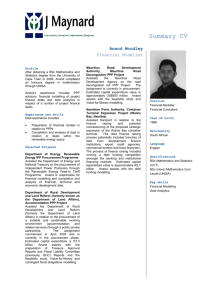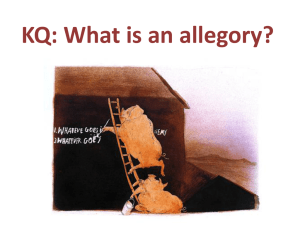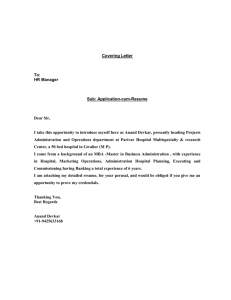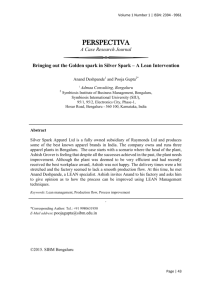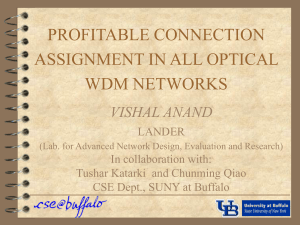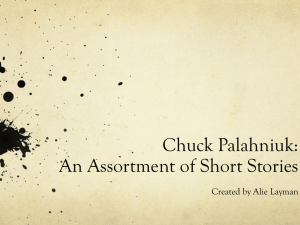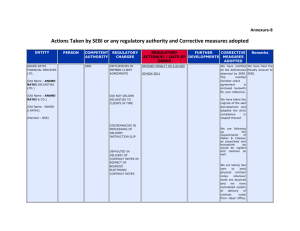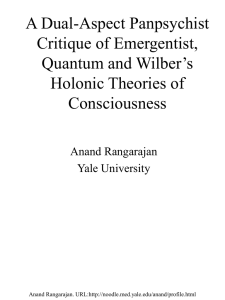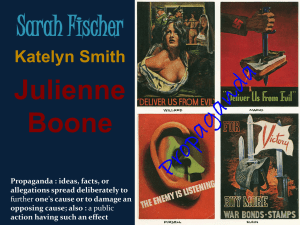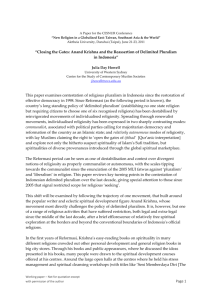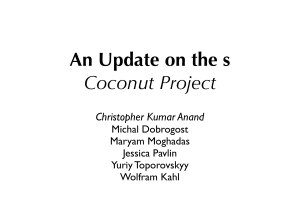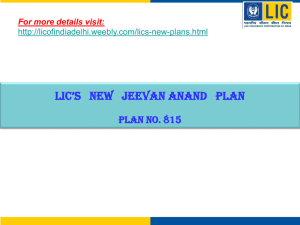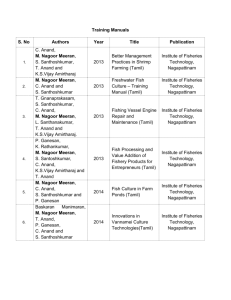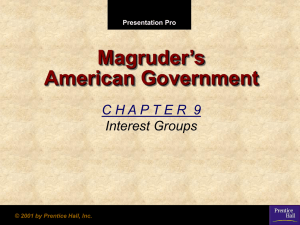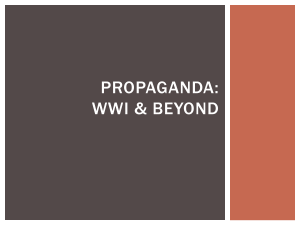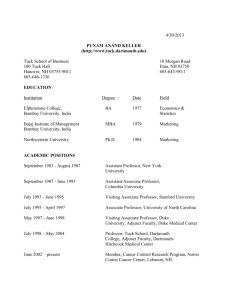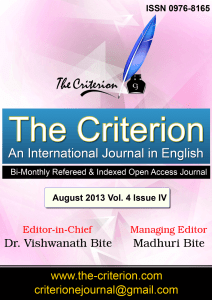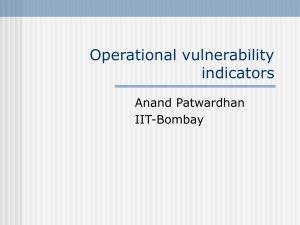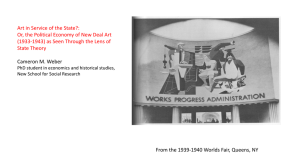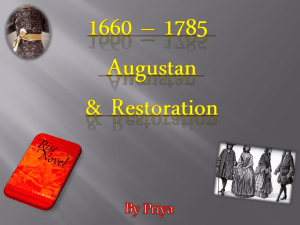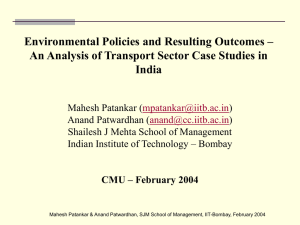Mulk Raj Anand : A Novelist par Excellence
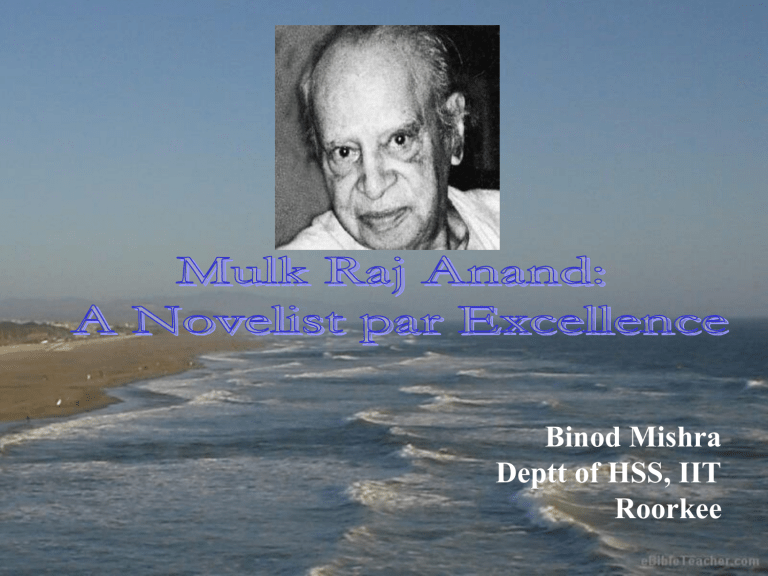
Binod Mishra
Deptt of HSS, IIT
Roorkee
Life & Achievements
Born in 1905 at Peshawar
Graduated in 1924 from
Khalsa College
Left India in 1925 for
England
Awarded PhD in 1929 on the philosophy of
Berkeley, Hume and
Russell
Influences & Acquaintances
• Tagore, Gandhi, Iqbal, Gorky, Tennyson
• D.H.Lawrence, Middleton Murry, Herbert
Read, Aldous Huxley, T.S.Eliot
Interfaces
• Meets Gandhi in 1932
• Returns to India in 1945
• Marries Kathleen and seeks divorce to marry Anil De Silva
• Awarded Sahitya Academy Award in
1972
General belief about Anand
• A period novelist
• A writer of socio-political fiction
• social reformer/historian
A full reading of Anand reflects :
• Cosmic view
• Kaleidoscopic in nature
• Human touch
Range of his Novels
Anand, it seems to me, is nothing less than a novelist of the human condition, a novelist whose province is human nature. The appeal of his novels is passionate; this significance is multiple and hopefully timeless rather than topical and temporal.
-K.N.Sinha in Preface to Mulk Raj Anand
Anand in an Interview to P.K. Rajan
I have been evolving a philosophy of the human person which is miscellaneous. It is not doctrinaire thought . It is a number of insights, possibly arising from my experience. I think we are part of a much bigger universe , so we are part of the whole world.
A Crusader
At home
Abroad
Advocated General strike in London
Irked at Eliot’s opinion about Gandhi
Sympathized with national struggle in Ireland.
Sympathized with Spanish Civil War
A broadcaster and script writer in the Film division of BBC.
Founded AIPWA
Anand’s faith as a writer
• Art not for art’s sake
• Literature means to modify society
• All art is mere propaganda
• I wish to be judged a a writer ,who has tried to tell the truth of life. And some compassion. I am not subject to western categories. The question is how far do my novels recreate life.
(Anand, In a letter to Neena Arora)
Anand’s views on
Life and Literature
Writing novels for the sake of writing novels was never my intention. I felt compelled to answer challenges and tried to get out of my own confusion.
I do not believe in institutionalized religion. And like
Tolstoy, I would like to leave the beliefs of people to their own conscience, collaborating with them for certain secular ends, without objecting to their pet religion.
Anand’s reaction to his Communist
Faith
I believe Marx supplies a good yardstick for history and his basic proposition “Means of production determine consciousness” is correct . Except that
Marx naturally simplified his thesis. He could not explain the irrational, instinctive and intuitive actions of man. There are many areas like aesthetic activity he left out. I am not a member of any political party. I reject nothing that is human. I agree with
Coomaraswamy when he said : “ civilization must henceforth be human rather than local or national, or else it cannot exist.”
( Letter to G.S. Balram Gupta,4 Aug, 1968.)
Anand’s First Trilogy:
Paradigms of Protest
Untouchable (1935)
Coolie (1936)
Two Leaves & A Bud (1937)
Caste theme
Exploitation of labour
Disgrace of dignity
Identity crisis
Protest against man, God and civilization
If you leave man to the mercy of god, first dig some graves.
Second Trilogy: Volcanic Eruption
•
The Village(1939)
• Across The Black Waters(1941)
• The Sword & The Sickle(1955)
Characteristics:
• Assertive and articulate
• Philosophical thrust
• Self realization and self actualization
• Awareness of a split in consciousness
• Spontaneous urge of anew generation
• Running between past, present and future
Wisdom of the Heart
The Private Life of an Indian Prince(1953)
The Old Woman or The Cow(1960)
Death of a Hero(1964)
Characteristics:
Freudian dimension
Moment of liberation
Martyrdom in a communal frenzy
Autobiographical novels:
Confessions
• Seven Summers(1951)
• Morning Face(1968)
• Confessions of a Lover( 1976)
• The Bubble(1984)
Characteristics:
• All threads of emotional and spiritual life
• Background of collective unconsciousness
• Philosophy of the human person that is miscellaneous
• Protagonist’s evolution to higher consciousness
Views On Life And Death
• One man can die but life cannot be extinguished in the world altogether until the very sun goes bold and the elements break up.
( The Big Heart)
• Love everyone and everything. Then through our good deeds shall we rise from our low caste and be warm into a higher caste.
(The Road)
I am anti-Christ. I want the romantic night even if it brings sorrow and melancholy. I shall have to live through the inner chaos.
There is something of water in a woman. Flowing, flowing always in one direction or the another, restless like the waves, sometimes overwhelmingly moody, fickle and capricious as a river in storm, sometimes bright and smiling, sometimes soft and sad but always tender and kind.
Anand on Art
• All art is propaganda. The art of Ajanta is propaganda. The art of Ajanta is propaganda for
Buddhism. the art of Ellora is propaganda for
Hinduism. The art of western novel is propaganda for humanity against bourgeois. Gorky as a humanist dared to speak of man, man’s condition, not only to say how awful it is but he also suggested what man could be. And thus he did propaganda for man.
M.R Anand, Soviet Review, Vol V No.21,1968,P-92
Conclusion
Men can contend with the disruptive forces and conquer them. If there is discord in life, it is only a stage and not a terminus.
Man has in him not only the noises of the earth but also the silence of the seas and the music of the year.
Life is not only the rhythmic flow of nerves but also the renewal of vibrations within.
